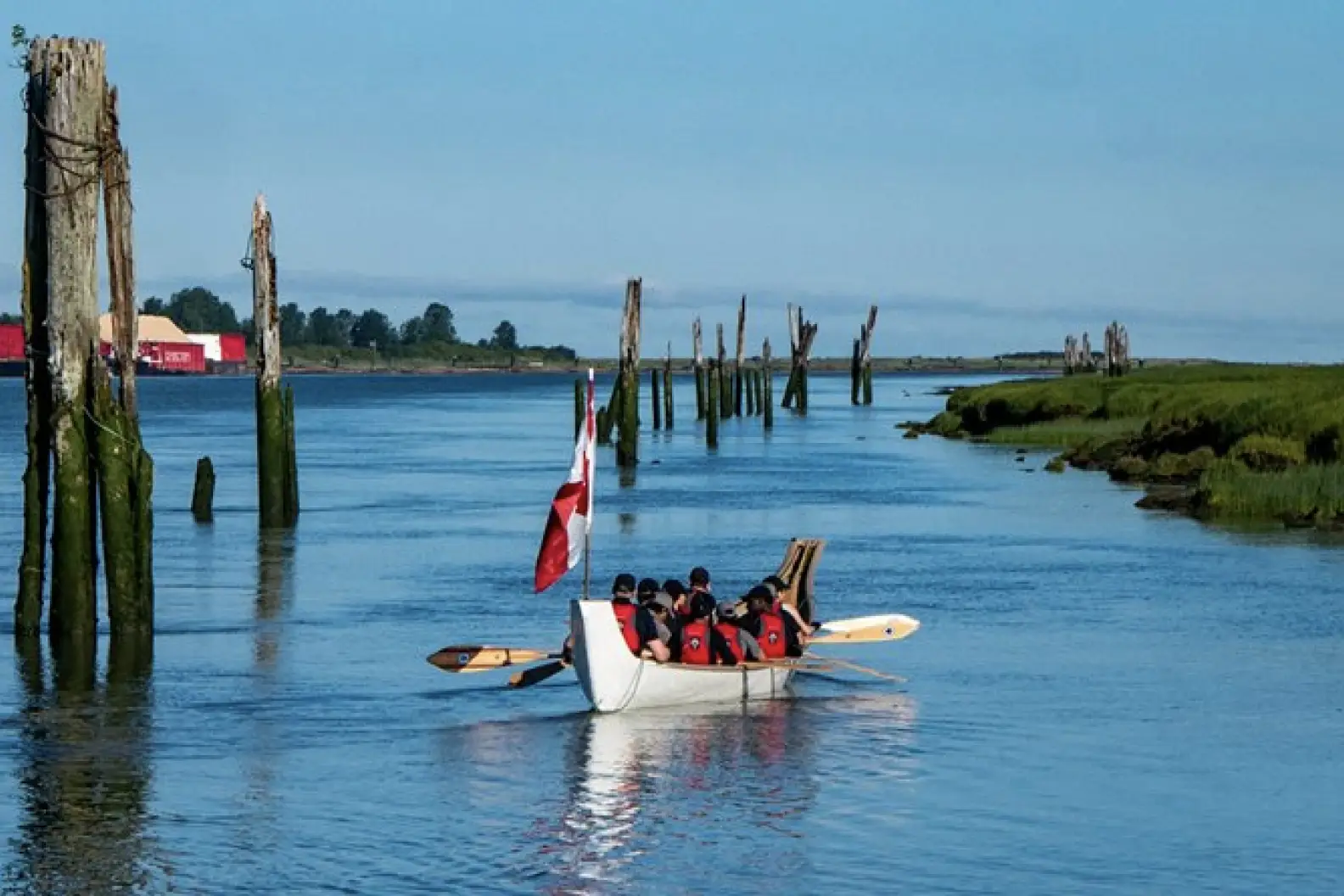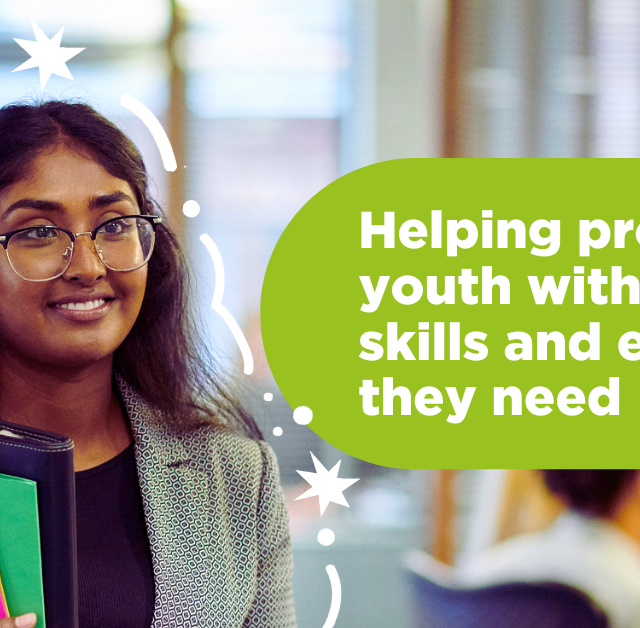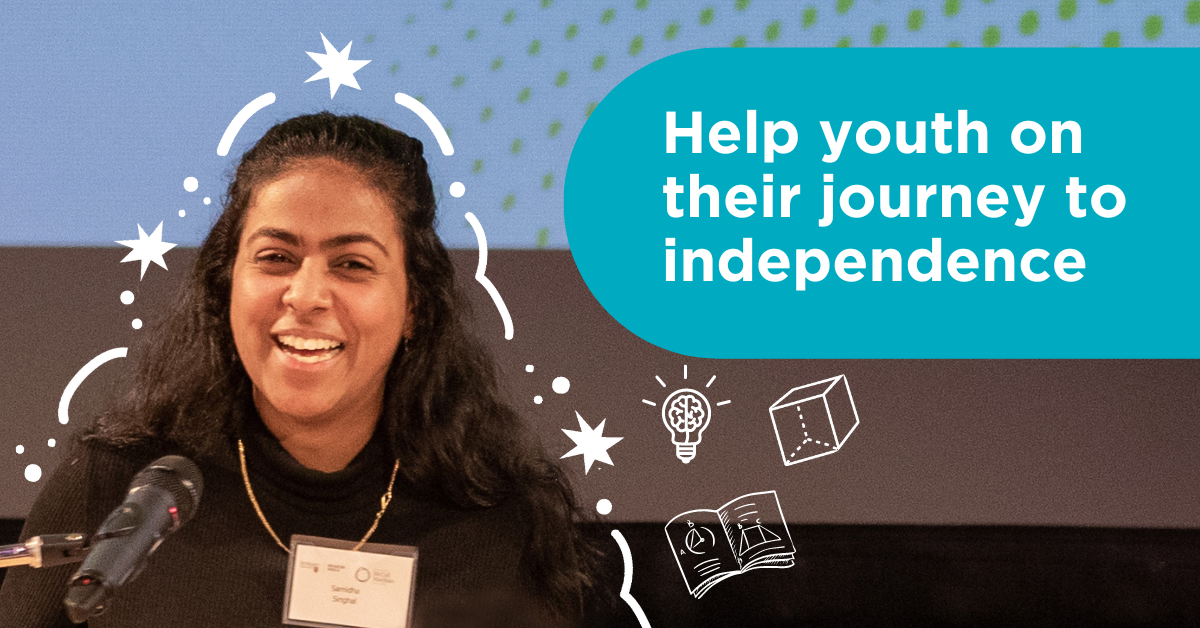
June was National Indigenous History Month, a time to recognize and honour the history, diversity, outstanding achievements, and vital leadership of Indigenous peoples in Canada. Along with our board members, youth advisors, partners, and donors, Children’s Aid Foundation of Canada recognizes that there is much more we need to do to as an organization, and are committed to listening, learning, reflecting, and taking action against our country and sector’s enduring systemic racism in order to move towards Reconciliation and strengthen relationships with Indigenous communities.
We know that systemic issues, such as inter-generational trauma and poverty, disproportionately cause Indigenous young people to come into care through no fault of their own, where they too often lose their connection to culture, identity, community, and their own well-being. Only seven per cent of Canadians are Indigenous, while over half of young people in care are Indigenous. We also know that Indigenous communities hold invaluable traditional wisdom and practices that best support their families and children, and have piloted innovative initiatives that help restore their communities’ strength and well-being. The child welfare sector as a whole has much to learn from their example.
The issue of Indigenous over-representation is a priority of Children’s Aid Foundation of Canada. We are interested in working in collaboration with Indigenous leaders and Indigenous-led partner organizations to develop and support targeted strategies and programming that better meet the specific rights, needs and goals of Indigenous young people, families and communities, particularly their over-representation in the child welfare system. As we continue to listen and learn, we are supporting some of these innovative initiatives including prevention programs and resources that address the barriers and inequities Indigenous communities and families face, including:
- Partnering with Indigenous-led organizations across the country to help provide supports for Indigenous young people in care, including: Cree Nation Child and Family Caring Agency, Indigenous Perspectives Society, Metis Child Family and Community Services, Michif Child & Family Services, Mnaasged Child and Family Services, Native Child and Family Services of Toronto, Southern First Nations Network of Care, and Yorkton Tribal Council Child & Family Services Inc.
- Supporting the Indigenous Spirit Fund at Native Child and Family Services.
- Having our Board and staff participate in Reconciliation training at Native Child and Family Services.
- Participating in the Child Welfare League of Canada’s Learning Community on Reconciliation.
- Providing funding to the Indigenous-led Back to the Land
- Supporting Native Child & Family Service’s Annual Community Pow Wow
- Signing on as a funding partner to the Government of Manitoba’s first-ever social impact bond, called Restoring the Sacred Bond, which aims to reduce the number of days Indigenous infants spend in government care by supporting at-risk expectant mothers before, during, and after childbirth.
As our next step, we will be releasing our new strategic framework outlining the Foundation’s key priorities going forward, including our commitment to addressing and preventing over-representation, through:
- Partnering and co-designing new programs with Indigenous leaders, organizations and communities to align our grants and programs with their guidance to better support Indigenous children and youth.
- Engage all Foundation stakeholders in ongoing education and (un)learning to deepen understanding of the colonialism, racism, and inequity impacting Indigenous peoples, as well as explore our own racial biases and how we as individuals and an organization are complicit.
- Develop advisory groups or committees to inform our strategies to address the unique needs of over-represented populations within the child welfare sector.
This month, and every day of the year, we honour and celebrate all Indigenous peoples, including the children, youth, and families we serve, and commit to doing better.



